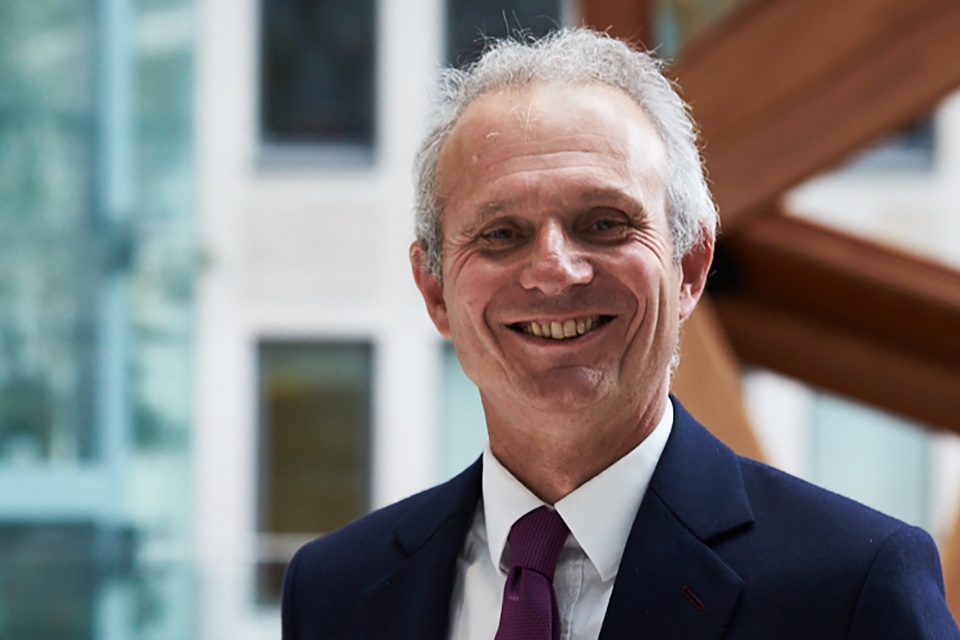Europe Minister David Lidington on Today programme
Foreign Office Minister David Lidington discussed the Eurozone and North Korea on BBC Radio 4's Today programme on 20 May 2010.

Evan Davis, presenter: Well, the new Europe Minister is David Lidington, who joins us now. Good morning.
David Lidington, Minister of State, Foreign & Commonwealth Office: Good morning.
ED: An opportunity provided by what is going on in Europe; what is the British approach to this euro crisis? What is our policy on the euro?
DL: Well, our policy… first of all, we’re very clear that it’s in Britain’s interest that the eurozone countries are able to get on top of these grave economic challenges they’re facing. I mean, we do a huge amount of our trade with the eurozone countries; our banks would be exposed through loans to some of those countries if there were to be a collapse of the financial institutions in southern Europe, so we want their reforms and their rescue packages to work and for those countries to get people back into work and to prosper. But beyond that I think there’s a big agenda that the Prime Minister is keen to discuss with the president of France and the German chancellor about taking Europe forward. We’re in throes of early discussions now at a European level about both the future of the European budget and about the overall shape of European economic policy towards 2020. And our view is that we need to see Europe focusing much more on getting people back into work, improving the single market through greater liberalisation, making other, sort of, initiatives on international trade - because I think that helps prosperity both in Europe and in the wider world - and in addressing major problems like climate change and nuclear proliferation where the habit of European countries working co-operatively together means that we are often able to speak much more firmly and effectively with one voice than if we’re all going our separate ways.
ED: With respect, these sound like familiar themes - they hark back to the themes of the decade that’s just past, that’s just finished. There is a crisis going on in Europe at the moment. Let me ask you some specifics about that. If Germany plans, or manages to persuade eurozone members to engage in a treaty change that changes the fiscal rules of the game - as the country is… Germany is now proposing - would we oppose such a change?
DL: I think we’ll look at what the Germans propose. At the moment there have been some initial reports but nothing specific. I think that our…
ED: Would we have to have a referendum on such a treaty? Even if it didn’t affect us but it did change the treaty…
DL: Well…
ED: …it would only have really applied to eurozone members - would that come under your new…
DL: Well, Evan, you’re…
ED: …rules about a referendum?
DL: …sort of, leaping across several bridges. I mean, the first thing…
ED: Well, there are a lot of bridges being burned and a lot being created at the moment.
DL: Yeah. The first thing we’ve got to establish is what it is that the German chancellor has in mind, and the Prime Minister will be discussing that with her tomorrow. I don’t think there’s a great appetite, not just in Britain but in the rest of the European Union, for further treaty change after the very long, drawn-out and controversial process of Lisbon. But the position of the coalition Government, both parties in it, is very, very clear on this, which is that, first of all, if there were to be a proposal for a treaty change, that is something that requires unanimity, so the British Government would have an absolute right of veto. And secondly, if the British Government were disposed to go along with a treaty change, we have a coalition commitment written into the coalition agreement that any future treaty that involved a transfer of powers or competencies at European level would…
ED: If it involves a transfer…
DL: It would involve…
ED: So if it didn’t involve us, if it doesn’t affect us because we’re not in the euro, there wouldn’t have to be a referendum on it.
DL: Well, we have… we’ll have to see what the wording…
ED: Right. Got it.
DL: …of any hypothetical treaty would be in order to make that judgement.
ED: Very briefly, I don’t know whether you’ve had time to be briefed on the North Korean situation this morning, but you’re a Foreign Office Minister…
DL: Yeah.
ED: …what is your reaction to what’s occurred?
DL: First of all, enormous sympathy for the families of those who lost their lives. Secondly, we’ve had British experts working alongside the South Koreans in investigating this and we are absolutely convinced of the veracity of the findings of this investigation. It appears to be the most appalling, wanton, cruel act of aggression by North Korea and in Britain we are discussing already with our friends and allies, in Asia in particular but across the world, what the appropriate firm multilateral response ought to be.
ED: David Lidington, thank you very much indeed.
Ends